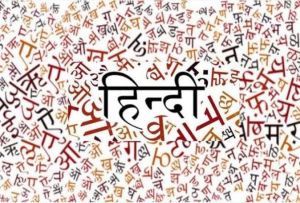Difference between revisions of "Language/Hindi/Grammar/Imperative-Mood"
Jump to navigation
Jump to search
m (Quick edit) |
|||
| Line 11: | Line 11: | ||
# '''Suni(y)e''' is the polite word of choice; one could translate it as “please listen”. | # '''Suni(y)e''' is the polite word of choice; one could translate it as “please listen”. | ||
# '''Suni(y)egā''' is extra-polite (“Would you kindly listen?”) and rarely heard in everyday encounters. | # '''Suni(y)egā''' is extra-polite (“Would you kindly listen?”) and rarely heard in everyday encounters. | ||
==Related Lessons== | |||
* [[Language/Hindi/Grammar/Be-Polite|Be Polite]] | |||
* [[Language/Hindi/Grammar/Past-Tense|Past Tense]] | |||
* [[Language/Hindi/Grammar/Pronouns|Pronouns]] | |||
* [[Language/Hindi/Grammar/Plurals|Plurals]] | |||
* [[Language/Hindi/Grammar/How-to-Use-Have|How to Use Have]] | |||
* [[Language/Hindi/Grammar/Future-Tense|Future Tense]] | |||
* [[Language/Hindi/Grammar/Present-Tense|Present Tense]] | |||
* [[Language/Hindi/Grammar/Questions|Questions]] | |||
* [[Language/Hindi/Grammar/Feminine|Feminine]] | |||
* [[Language/Hindi/Grammar/Adjectives|Adjectives]] | |||
* [[Language/Hindi/Grammar/Conditional-Mood|Conditional Mood]] | |||
* [[Language/Hindi/Grammar/How-to-Use-Have|How to Use Have]] | |||
* [[Language/Hindi/Grammar/Gender|Gender]] | |||
* [[Language/Hindi/Grammar/Negation|Negation]] | |||
Revision as of 13:08, 26 February 2023
Imperative Mood in Hindi
Whereas there is only one imperative in English, there are 5 different imperatives in Hindi.
Each form convey different levels of politeness:
- Sunnā is simply the infinitive of the verb “to listen” and it can also be used as a somewhat crude imperative.
- Similarly, sun —the root of the infinitive—carries a rough undertone. Both can be used among good friends or close relatives.
- Suno is slightly more polite and can be used among acquaintances or in casual everyday speech; but don’t use it in front of persons of authority or high standing.
- Suni(y)e is the polite word of choice; one could translate it as “please listen”.
- Suni(y)egā is extra-polite (“Would you kindly listen?”) and rarely heard in everyday encounters.
